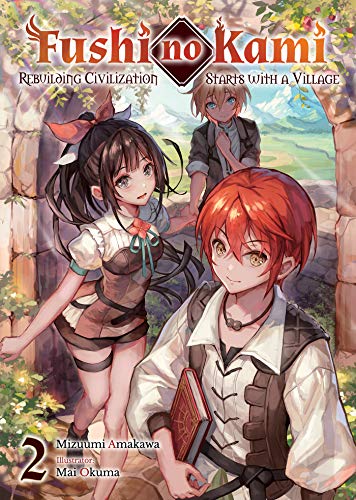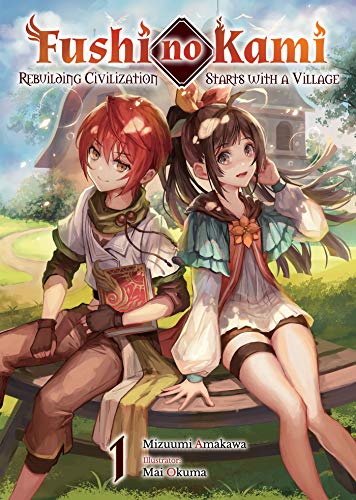By Mizuumi Amakawa and Mai Okuma. Released in Japan as “Fushi no Kami: Henkyou kara Hajimeru Bunmei Saiseiki” by Overlap. Released in North America by J-Novel Club. Translated by Jade Willis.
I would like to take this point to mock those reviewers who suggested that this was not going to end up with Ash having more than one wife. If I could quote one of those foolish reviews, one… let me check my notes here… Sean Gaffney, he said in the review of the sixth volume “I’m pretty sure this is not a polycule sort of book.” And yet here we are, and the outcome of the 7th book is so little in doubt that I’m even spoiling it in this opening paragraph. There are no more battles with demons or werewolves here, and the only new ridiculous tech is the finished airplane at last. No, this entire book is about politics, about the fact that Ash and the frontier territories have gotten far too powerful for the royal family’s comfort, and how they can get Alicia away from the royal family and back to her rightful place next to Ash and Maika. The cover art tells you how this turns out.
After the events of the previous book, refugees are flowing into Sacula, and everyone has their hands full trying to find ways to not have them dying in the streets or turning into bandits to stay alive. Towards that end, they have asked for help from the central territories and the royal family. Unfortunately, the king is ambivalent and also weak, and the crown prince is completely hostile. Fortunately they have Alicia, who gets the help of the Church to send much needed supplies. Unfortunately, she’s proving far too popular, so much so that even though she doesn’t want the throne, some nobles want her to take it anyway. As a result, she’s locked away in the palace. Ash is going to have to find a way to rescue her.
I find it amusing, given how Ash has gone out of his way to avoid taking credit for the many things that he’s spearheaded over the years, that the solution to his problems here is to cash in on all those things, admit they WERE all his doing, and get royal recognition (which essentially comes with an “I get whatever I ask for” coupon). As for the two wives thing, it’s pretty clear from the start that Maika is absolutely fine with this, and as a matter of fact might be more annoyed if Ash didn’t make that the solution. She and Alicia have been close ever since Alicia’s days as “Arthur”, and I can definitely see the two of them teaming up on him in the future. We don’t get a wedding, because in the end it’s the civilization that’s more important than the romance – the real climax of the book is the working plane, not Alicia declaring she loves Ash.
This is the final volume in the series, and a quick epilogue puts a definitive capper on things. It’s just about the right length, and I enjoyed this far more than I was expecting. Please enjoy this ridiculous boy becoming a ridiculous man.






